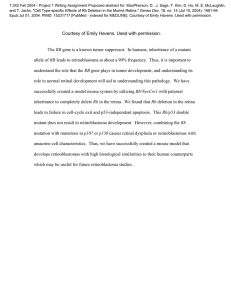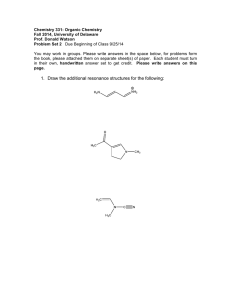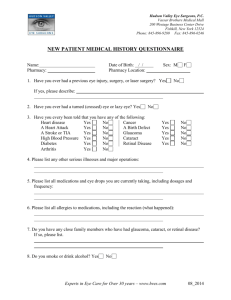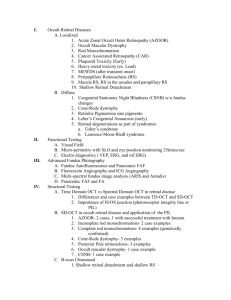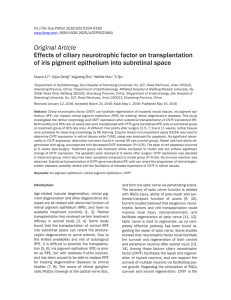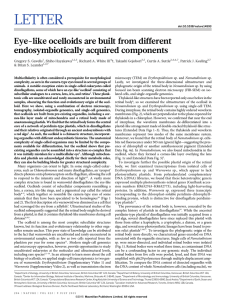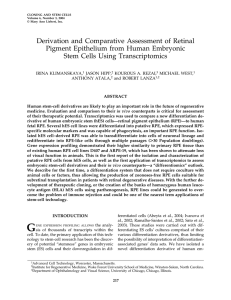Document 13526054
advertisement
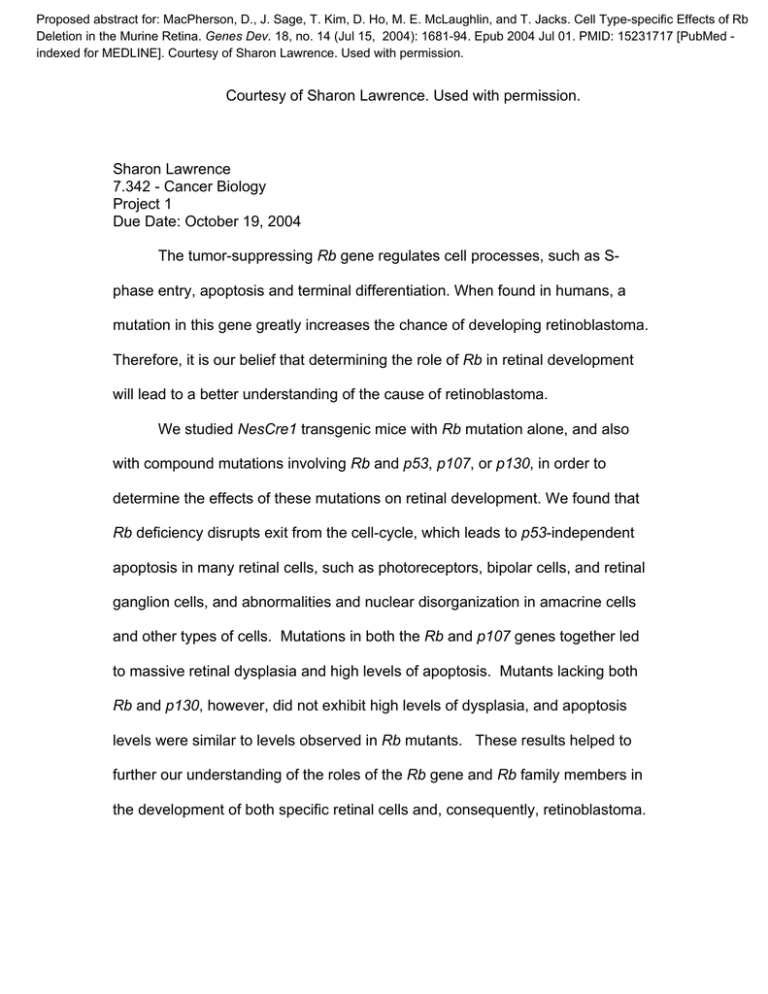
Proposed abstract for: MacPherson, D., J. Sage, T. Kim, D. Ho, M. E. McLaughlin, and T. Jacks. Cell Type-specific Effects of Rb Deletion in the Murine Retina. Genes Dev. 18, no. 14 (Jul 15, 2004): 1681-94. Epub 2004 Jul 01. PMID: 15231717 [PubMed indexed for MEDLINE]. Courtesy of Sharon Lawrence. Used with permission. Courtesy of Sharon Lawrence. Used with permission. Sharon Lawrence 7.342 - Cancer Biology Project 1 Due Date: October 19, 2004 The tumor-suppressing Rb gene regulates cell processes, such as Sphase entry, apoptosis and terminal differentiation. When found in humans, a mutation in this gene greatly increases the chance of developing retinoblastoma. Therefore, it is our belief that determining the role of Rb in retinal development will lead to a better understanding of the cause of retinoblastoma. We studied NesCre1 transgenic mice with Rb mutation alone, and also with compound mutations involving Rb and p53, p107, or p130, in order to determine the effects of these mutations on retinal development. We found that Rb deficiency disrupts exit from the cell-cycle, which leads to p53-independent apoptosis in many retinal cells, such as photoreceptors, bipolar cells, and retinal ganglion cells, and abnormalities and nuclear disorganization in amacrine cells and other types of cells. Mutations in both the Rb and p107 genes together led to massive retinal dysplasia and high levels of apoptosis. Mutants lacking both Rb and p130, however, did not exhibit high levels of dysplasia, and apoptosis levels were similar to levels observed in Rb mutants. These results helped to further our understanding of the roles of the Rb gene and Rb family members in the development of both specific retinal cells and, consequently, retinoblastoma.

